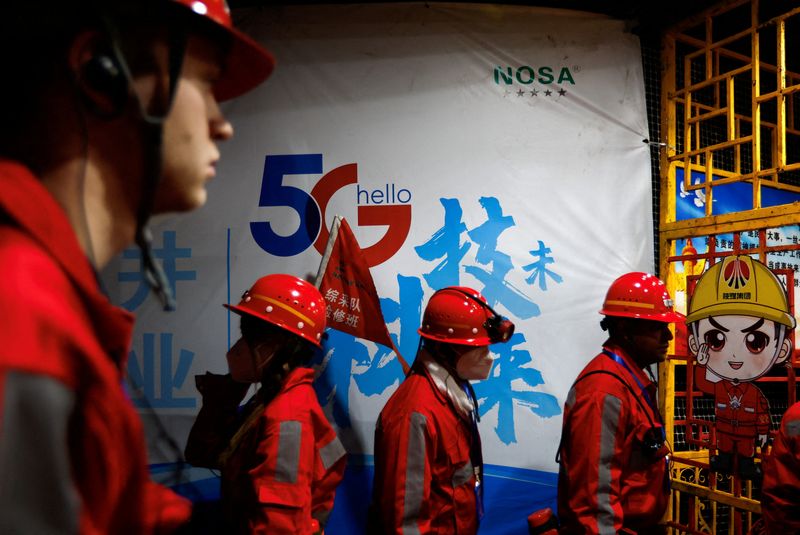BEIJING (Reuters) - China will address the risks of fragmentation and imbalances as it seeks to build new infrastructure aimed at upgrading its manufacturing sector, the government said on Wednesday.
China has built the world's largest 5G network and fibre-optic broadband infrastructure, with growing capabilities in artificial intelligence, according to a notice issued by state agencies, including the industry ministry, finance ministry and the central bank.
"However, the development problems such as difficulties in coordination and integration, lack of coordination, and imbalances are becoming increasingly prominent," it said.
It also highlighted the problems of uncoordinated development and regional disparities across new information infrastructure.
The new infrastructure will drive the development of "new productive forces" in the economy and support the upgrading of industries with the objective of building a strong manufacturing nation, the agencies noted.
The term "new productive forces," coined by President Xi Jinping last year, emphasizes the need for economic growth driven by innovation in advanced sectors.

With traditional infrastructure investments in roads, rail, and bridges yielding diminishing returns, China is increasing its focus on "new infrastructure" projects, including 5G telecommunications, artificial intelligence, and big data.
(This story has been refiled to remove an extraneous word in paragraph 1)